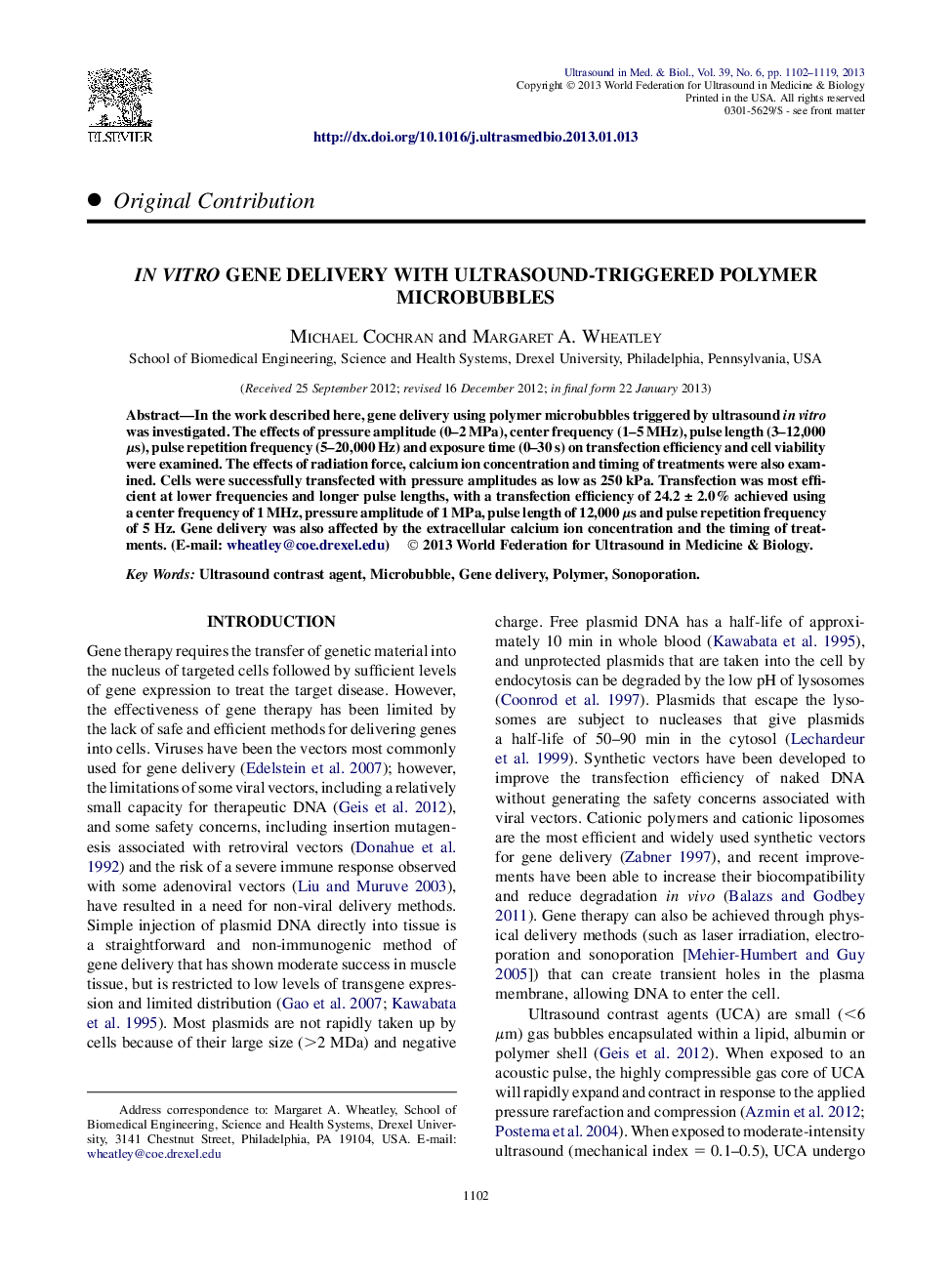| Article ID | Journal | Published Year | Pages | File Type |
|---|---|---|---|---|
| 10691969 | Ultrasound in Medicine & Biology | 2013 | 18 Pages |
Abstract
In the work described here, gene delivery using polymer microbubbles triggered by ultrasound in vitro was investigated. The effects of pressure amplitude (0-2 MPa), center frequency (1-5 MHz), pulse length (3-12,000 μs), pulse repetition frequency (5-20,000 Hz) and exposure time (0-30 s) on transfection efficiency and cell viability were examined. The effects of radiation force, calcium ion concentration and timing of treatments were also examined. Cells were successfully transfected with pressure amplitudes as low as 250 kPa. Transfection was most efficient at lower frequencies and longer pulse lengths, with a transfection efficiency of 24.2 ± 2.0% achieved using a center frequency of 1 MHz, pressure amplitude of 1 MPa, pulse length of 12,000 μs and pulse repetition frequency of 5 Hz. Gene delivery was also affected by the extracellular calcium ion concentration and the timing of treatments.
Related Topics
Physical Sciences and Engineering
Physics and Astronomy
Acoustics and Ultrasonics
Authors
Michael Cochran, Margaret A. Wheatley,
